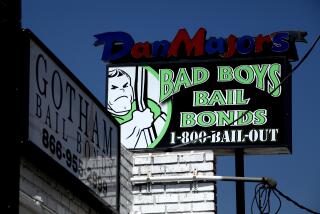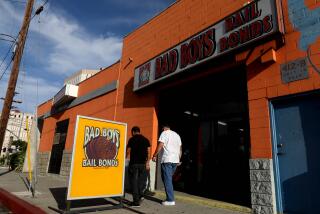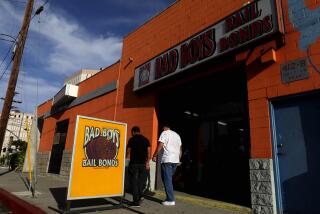Jury Duty Need Not Be a Trial
- Share via
When you list all of the ways to spend your time away from work, jury service is not likely to be among your favorites. In fact, when your jury summons arrives, you may start plotting how to be excused. Failing that, you may try to postpone it, hoping the court will forget about you.
Courts themselves have brought on some of this reluctance. We judges and other court officers haven’t been as sensitive as we could be to the realities of modern life. People simply don’t have two weeks to sit in a jury assembly room waiting to be called.
And we haven’t handled the human relations part of jury service as effectively as we could.
For example, we insisted that you appear at the courthouse, taking days or weeks from your schedule, and then you simply sat around. More than we would have liked, we let you cool your heels outside a courtroom, waiting to be interviewed for jury placement. We often didn’t bother to tell you when attorneys were negotiating to settle the case, and that you might not be needed.
At times, we left you sitting in a jury room for long periods while attorneys argued motions that were decided solely by the judge. We sometimes left you in the dark about what was happening. We barred you from taking notes. In short, we understand your indifference--possibly your hostility--when the jury summons arrives in your mailbox.
In 1999, the Los Angeles Superior Court began implementing a system called “one day, one trial.” Its use was made mandatory in California starting in 1998, and in mid-June we finished taking this program countywide.
In this system, you are required to call in daily for one week and be prepared to report the following day for jury duty. On that one day, you may actually be seated on a jury. Most trials last a week or less. If you are not selected, your jury service is completed on that day.
Our court system requires 10,000 jurors a day. Simple math shows that unless excuses from jury service are minimized, we would exhaust the 6.1-million-person Los Angeles County jury pool in less than a year. So we are paying much more attention to people who refuse to respond to our summonses. While some may see this as enforcement, we look at it as assuring equity in jury service.
To make jury duty more truly equitable, we’ve broadened the categories of people who can expect to be called to jury duty. We routinely refuse to excuse elected officials, celebrities or prominent members of the clergy.
Our judges are urged to put jurors first when deciding how to run their courtrooms. We have asked them, for example, to hold off calling for potential jurors until 20 minutes or less before they are needed inside the courtroom. We have also asked judges to more realistically estimate how many jurors they will need and when they will need them. We are working to persuade all employers to pay workers when they serve on juries. We are reminding lawyers--as well as our own judges--to respect jurors’ time and dignity.
It would be foolish to declare victory--yet, anyway. Our research finds, however, that the 10% of jurors who participate in a trial almost always find the experience deeply rewarding. Our hope for the other 90% is that they leave our jury assembly rooms knowing they were treated well.
More to Read
Sign up for Essential California
The most important California stories and recommendations in your inbox every morning.
You may occasionally receive promotional content from the Los Angeles Times.













